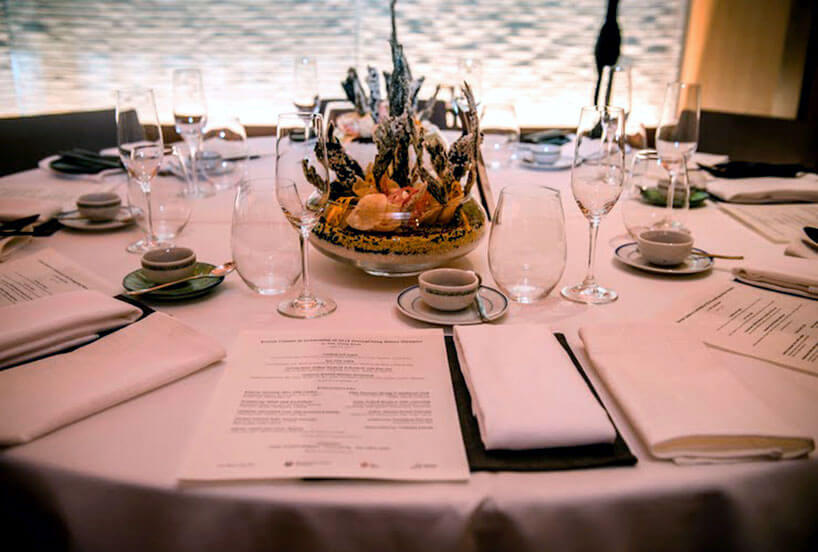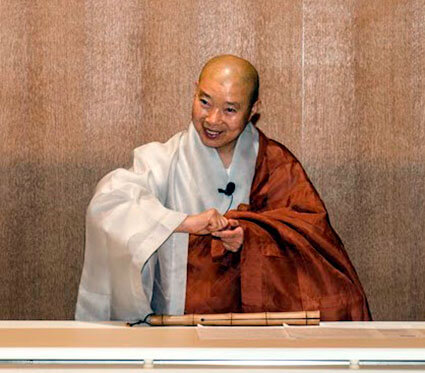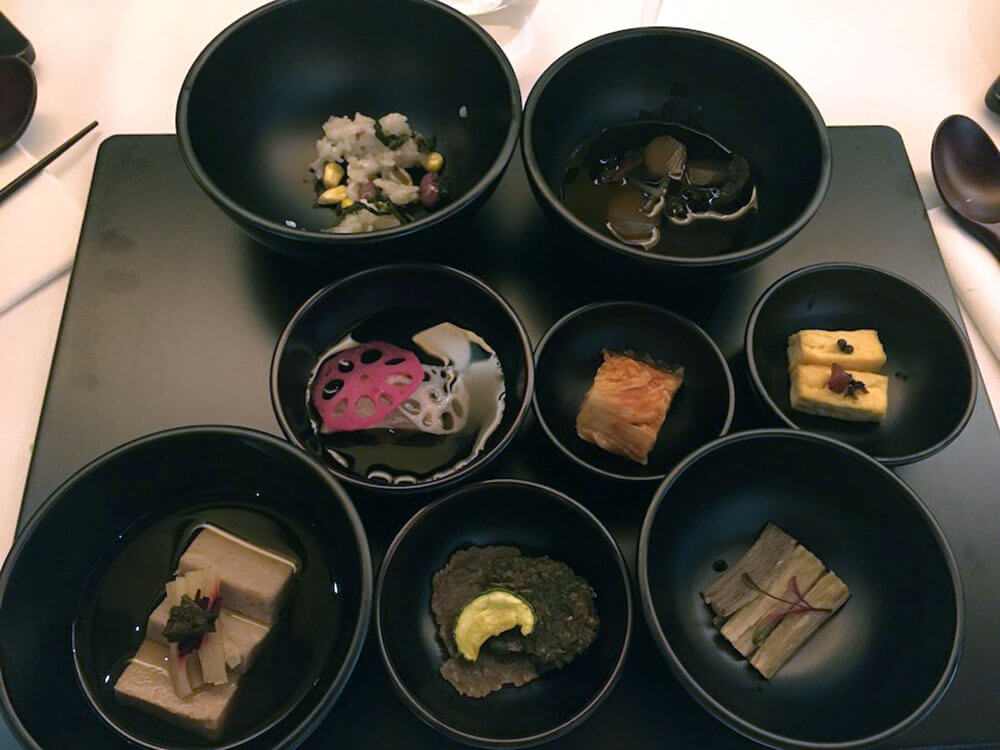
An edible centerpiece at a Korean temple cuisine luncheon served at Le Bernadin in New York City. (Michael Marquand)
When the Ministry of Culture, Sports, and Tourism of the Republic of South Korea hosted a lunch and tea service prepared by Buddhist nun Jeong Kwan earlier this summer, it drew a crowd of culinary celebrities to a private dining room at the French restaurant, Le Bernardin, in Manhattan. I chatted with the legendary — and down-to-earth — food writer and editor Ruth Reichl as I sipped lotus tea and Martha Stewart was at the next table, snapping pictures to post on Instagram.

Buddhist nun Jeong Kwan. (Michael Marquand)
But the real star of the event was the smiling Kwan and the ingredients she brought with her from Gangwon Province in South Korea. Kwan used them to prepare temple cuisine, which originated in Korean Buddhist temples and is based on wild greens and mountain-grown herbs. Some tastes were familiar — beets, shitake mushrooms, kidney beans, and rice — but others were a revelation, such as balloon flower leaf, root of bonnet bellflower, and peppery sansho.
It was an introduction not only to Korean temple cuisine, which Kwan has helped make famous through her friendship with Eric Ripert, chef and co-owner of Le Bernadin, but to the flavors of the Gangwon Province, where the 2018 Winter Olympics will be held in PyeongChang in February 2018.
The Olympic Games are a sporting event, said Rai-hyug Kim, Ambassador of International Relations for the Gangwon Province, “but visitors want to enjoy unique local food.” Toward that end, the Korea Tourism Organization also sponsored a K-Food Festival in Seoul, also this summer, where Korean chefs created new dishes from locally sourced ingredients from the province.
Seoul, the capital and the world’s 16th largest city, is well known for its high tech, pop culture, and street markets. In contrast, PyeongChang, which is less than two hours from Seoul in the Korean Alps, is a mountain ski resort town which has been compared to Lake Placid, New York, where the Winter Olympics were held in 1980.
In preparation for the Olympics, the province has made improvements to the infrastructure, including trimming an hour off the amount of time it takes to travel to PyeongChang from Seoul, Kim said. Along with hotel and restaurant improvements, PyeongChang locals have been encouraged to list room and properties on Airbnb, said Ki-Hong Kim, vice president of games planning, PyeongChang Organizing Committee
In addition to sports — and food — the Olympics program is intended to introduce Korea to visitors, with festivals filled with dance, music, and, cultural tradition, Ambassador Kim said.
At the luncheon, Kwan introduced guest to barugongyang — the “monk’s meal” — which was served communally on pottery, and was also shipped from the temple. She explained how she links loving kindness with growing and preparing food.
“Warm hospitality infuses almost every aspect of daily and business life, including events,” Convene contributor Corin Hirsch wrote last year, after she spent a week visiting meeting venues, hotels, and cultural sites and soaking up the local ambience. “Koreans shower visitors with such unrestrained warmth and patience — as well as food — that their hospitality stayed with me long after the flight back home.”
As I left, stepping back into the noisy streets of Manhattan, I knew just what she meant.

Barugongyang, Korean temple cuisine
